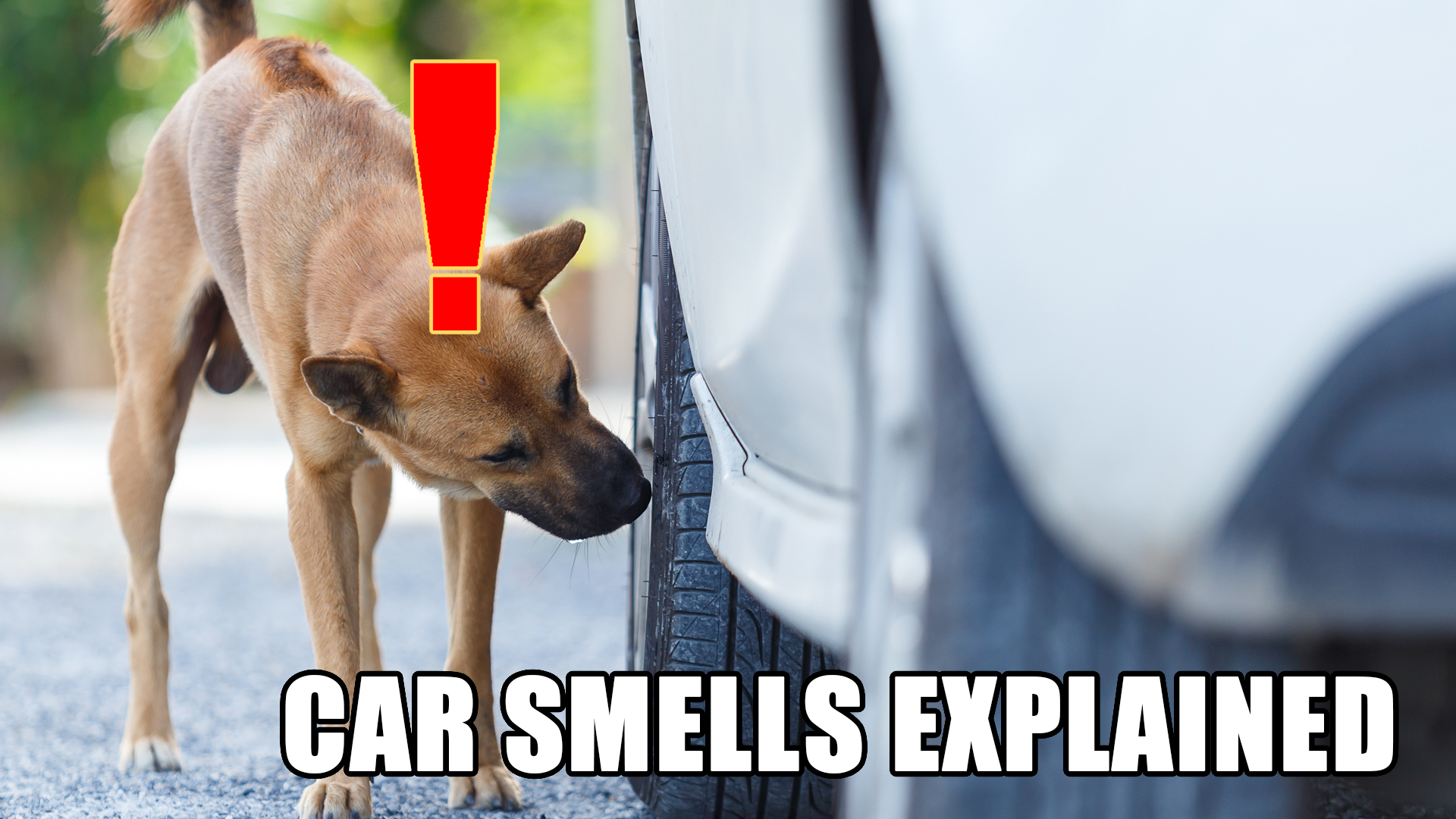

We may earn revenue from the products available on this page and participate in affiliate programs. Learn more ›
Although several common automotive issues can be felt, heard, or seen, an acute sense of smell is often the most helpful indicator that your vehicle is having a bad day. I would know, smell saved me back when I was racing my derelict Daewoo.
On the last heat of the 2021 Out Motorsports trackcross, the car billowed smoke, blinding me as I rounded the final corner of the last heat of the day. I panicked and thought, “Oh God, I’ve set my car on fire. I need to pull over and get out as soon as possible!” Then I realized that the smoke didn’t smell like burning, it was sweet. Paying attention to that big ol’ sniffer on the front of my head helped me determine that the smoke wasn’t a car fire, it was merely steamy coolant from an exploded thermostat housing.
When your car is in trouble, knowledge is power. If you know what common car-related problems smell like, it could be the difference between a total freak out and just a mild cause for concern. Here are some common smells that you should watch (smell) for, and what they could mean.
Smell: Burnt rubber, with a slight sweet twang

Diagnosis: Clutch
In vehicles with manual transmissions, the clutch is a disc that connects the engine and the transmission. As the clutch pedal is depressed, that spinning disc moves away from the engine. No doubt, this whole process has a lot of friction, and if the clutch is partially engaged, it will needlessly rub and consequently smell.
Try being quicker with your shifts, taking care not to slip the clutch too much. If the smell is constant whilst driving, there’s likely some sort of clutch failure that is causing too much friction.
Smell: Musty air, maybe dead plant matter

Diagnosis: Dirty cabin air filter
The cabin air filter screens the air outside before it comes into the cabin. However, like any filter, it can become clogged and dirty from the elements, lending a funky smell. If the interior smells, even after a deep clean, it might be time for a new cabin air filter.
Smell: Sweet but also a little fishy

Diagnosis: Coolant
One of the main ingredients in engine coolant is ethylene glycol, normally a mostly odorless and sweet-tasting chemical (please do not try tasting it) that’s responsible for absorbing heat and holding liquid a lot better than just plain water. Generally, coolant has a low odor when at room temperature and drivers should not be able to smell it when the vehicle’s cooling system is free of leaks.
However, fresh coolant has a different smell than coolant burned by the engine. When the engine is burning coolant, the exhaust might smell slightly sweet and is usually accompanied by white smoke. But hot coolant leaking onto a hot engine or exhaust smells distinctly sweet.
Coolant fumes aren’t safe to breathe and ethylene glycol (coolant) ingestion can cause nausea, dizziness, and all sorts of not very comfortable things. Unfortunately, because of its sweet taste, animals and small children have been killed from accidentally ingesting coolant. If you’re smelling a sweet and fishy smell, be sure to check your cooling system for leaks. Particularly, hot coolant leaking into the passenger cabin via a broken heater core could spell danger for the occupants.
Smell: Burnt rubber or hair

Diagnosis: Brakes
Braking is not a mechanically complicated process. Essentially, a piece of metal squeezes against another spinning piece of metal to slow the vehicle down. From this friction, some odor and heat are pretty normal. However, if the smell is excessive to the degree you can smell brakes constantly or under mild driving, there may be a braking issue.
Check the braking system, as there may be a stuck caliper, frozen brake, or rubbing brake making contact when it shouldn’t be.
Smell: Oil inside the cabin

Diagnosis: Oil leak
An oil leak is one of the most common issues car owners will encounter. Commonly, rubber seals that hold in all that dino goop wear out and let some of that juice slip out. Generally, all vehicles have cabin air in intakes that inhale right near the hood area. If oil is leaking on a hot place (like, say, an exhaust manifold) that oil smoke can easily waft into the cabin.
Now, the homebrew mechanic in me is inclined to say that some oil leaks are more serious than others, but really, no engine is designed to leak oil onto the ground. Depending on the amount, a severe oil leak could very easily be a fire hazard. Or, at the very least, an ecological hazard.
Smell: Rotten eggs

Diagnosis: Ruined catalytic converter
A vehicle’s catalytic converter is a box full of precious metals that react with exhaust gasses to make them significantly less toxic to the environment. Those metals normally convert the hydrogen sulfur in gas into odorless and less harmful sulfur dioxide. When the metals have lost their efficacy, hydrogen sulfur escapes right into the environment, causing the rotten egg smell.
Catalytic converters don’t usually just fail on their own unless the vehicle has extremely high mileage. Running conditions, such as a misfire, can prematurely damage or destroy the metal catalyst inside.
Smell: Gym bag and/or body odor

Diagnosis: Air conditioning lines may not be draining
A vehicle’s air conditioning (AC) system isn’t all that different from what’s in a house or apartment. The condenser, the part of the AC system that makes the air cold, runs through the outside air. The temperature difference generates a lot of water condensation that usually drains out harmlessly onto the ground.
Yet, sometimes the lines that channel away that water get clogged. That excessive water leads to mold and mildew buildup, ergo, a stinky AC system. That smell then flows through the system and into the car.
Smell: Gas

Diagnosis: You’re leaking fuel
Burned gas and raw gas have two different smells. Burned gas results in exhaust fumes. Raw gas, however, is gas that hasn’t been combusted by the engine. Remember, there’s no car out there that’s designed to intentionally leak fluids on the ground. Leaking fuel is dangerous, as just one spark or a hot car part could send a vehicle up in flames. Typically, vehicles may leak among fuel lines, fuel filler necks, or injectors, all of which could be dangerous if they make contact with any sort of ignition source.
Understanding what a vehicle should properly smell like will go a long way to staying safe on the road. Those are some of the most common car-related smells to keep aware of. Let’s put those sniffers to good use, y’all.
